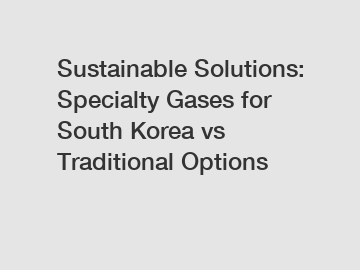What Is Thermally Conductive Silicone
Thermally conductive silicone is a remarkable material that has gained prominence in various industries for its unique combination of properties. From electronics to automotive applications, this silicone-based material plays a crucial role in facilitating efficient heat transfer. In this article, we delve into the characteristics, applications, and advantages of thermally conductive silicone.
1. Understanding Thermally Conductive Silicone
At its core, thermally conductive silicone is a type of silicone rubber that has been enhanced with thermally conductive fillers. These fillers, typically made of ceramics or other thermally conductive materials, enhance the silicone's ability to transfer heat. The result is a versatile material that effectively dissipates heat, making it invaluable in applications where thermal management is essential.
2. Properties of Thermally Conductive Silicone
2.1 Thermal Conductivity:
The primary characteristic that sets thermally conductive silicone apart is its enhanced thermal conductivity. This property allows the material to efficiently transfer heat away from sensitive components or surfaces, preventing overheating.
2.2 Flexibility and Conformability:
Thermally conductive silicone retains the inherent flexibility and conformability of silicone rubber. This makes it suitable for applications that involve irregular or uneven surfaces, ensuring optimal contact for heat transfer.
2.3 Electrical Insulation:
In addition to its thermal properties, thermally conductive silicone maintains excellent electrical insulation. This dual functionality makes it ideal for electronic applications where both heat dissipation and electrical isolation are critical.
3. Applications in Electronics
3.1 Electronic Encapsulation:
Thermally conductive silicone is widely used for encapsulating electronic components. It provides a protective barrier while efficiently transferring heat away from sensitive electronics, preventing damage due to overheating.
3.2 Thermal Interface Materials (TIMs):
The material is frequently employed as a thermal interface material in electronic devices. It is applied between heat-generating components, such as processors or LEDs, and heat sinks to enhance the efficiency of heat dissipation.
See also:Is C2H4 gas the key to sustainable energy?
Is Hydrogen Gas the Future of Energy?
Unveiling the Chemical Properties of SF6 Gas
Revolutionizing Safety: Is Calibration Gas The Solution?
Top-Quality Industrial Gas for Sale: Where to Find and How to Choose
Is Sulphur Hexafluoride for Sale Fueling Environmental Concerns?
Unlocking the Potential of Silanes Gas in Glass Production
4. Automotive Thermal Management
4.1 Under-the-Hood Applications:
In the automotive industry, thermally conductive silicone finds application in under-the-hood components. It helps manage heat in areas like engine compartments, ensuring optimal performance and preventing damage caused by excessive temperatures.
4.2 LED Lighting Systems:
LED lighting systems generate heat during operation. Thermally conductive silicone is used to dissipate this heat efficiently, prolonging the lifespan and maintaining the performance of LED lights in automotive applications.
5. Advantages of Thermally Conductive Silicone
5.1 Effective Heat Dissipation:
The primary advantage of using thermally conductive silicone is its ability to dissipate heat effectively. This property contributes to the longevity and reliability of electronic components and systems.
5.2 Versatility:
Thermally conductive silicone is a versatile material that can be customized to suit various applications. Its adaptability to different forms and shapes makes it suitable for diverse industries.
5.3 Durability:
The material's durability ensures long-term performance in demanding environments. It can withstand fluctuations in temperature, exposure to chemicals, and other harsh conditions.
Conclusion
Thermally conductive silicone stands as a testament to the innovative strides made in materials science. Its unique combination of thermal conductivity, flexibility, and electrical insulation makes it a go-to choice for industries demanding efficient heat management. From electronics to automotive applications, the advantages of thermally conductive silicone contribute significantly to the performance and reliability of diverse systems.
For premium thermally conductive silicone products or further information, contact us. As a trusted supplier, we offer high-quality materials that meet the stringent demands of various industries. Ensure optimal thermal management in your applications by choosing thermally conductive silicone from a reliable supplier.
Revolutionizing Healthcare: Benefits of Custom Medical Gas Products" - Why are custom medical gas products gaining popularity?
How to choose high quality custom medical gas products?
How Does hydrogen fuel cell Work?
4 Advice to Choose a High-Quality Electronic Gases
Revolutionizing Green Energy: DIY Methane Production Tips?
C3F6 Gas for Sale: Comparing Prices and Quality
Are High-Quality Electronic Gases the Future?









